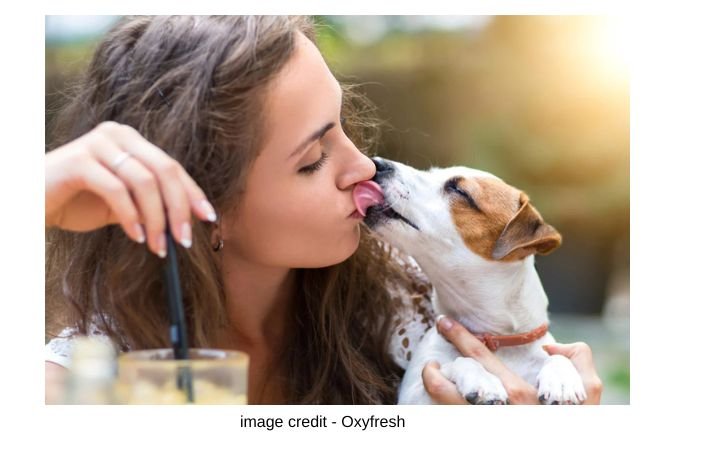Kisses Safe? Essential Tips for Every Pet Owner
For many pet owners, a dog’s affectionate lick on the face is a cherished sign of love. But as heartwarming as those kisses may be, some people wonder whether they might pose health risks. Understanding the potential dangers and how to mitigate them is crucial for maintaining both your health and your furry friend’s well-being. Let’s discuss whether kissing a dog is safe and how to enjoy kissing your dog without jeopardizing your safety.
The Science Behind Dog Kisses
Dogs, like babies, use their mouths to explore the world, exposing their tongues to all types of bacteria, parasites, and other microorganisms. While many of these are harmless to people, others may cause illness.
Bacteria in a Dog’s Mouth
A common misconception is that a dog’s mouth is cleaner than a person’s. However, bacteria found in dog saliva include Pasteurella, Capnocytophaga, and Salmonella. For healthy individuals, these pose little threat, but for immunocompromised patients, they can be risky.
Parasites
Dogs can carry parasites such as roundworms or hookworms, which could be transmitted via saliva or feces if the dog recently licked its fur or anus before kissing.
Diseases
Certain diseases, such as leptospirosis and rabies, can be transferred from dogs to humans. While vaccinated and properly cared-for pets pose minimal risk, it is never entirely eliminated.
Health Risks of Dog Kisses
Although the risk of getting sick from a dog kiss is low, it is not impossible.
Skin Infections
Dog saliva can cause minor skin infections if it comes into contact with broken skin or wounds. Bacteria can penetrate cuts, leading to cellulitis.
Gastrointestinal Issues
Harmful bacteria like E. coli or Campylobacter can cause upset stomachs, diarrhea, or vomiting if transmitted.
Allergic Reactions
Proteins in dog saliva can trigger allergic reactions in some individuals, resulting in rashes, itching, or respiratory conditions.
Risks for Vulnerable Populations
Vulnerable individuals, such as babies, the elderly, or pregnant women, should avoid close contact with dog saliva as they are more susceptible to infections.
How to Reduce Possible Hazards
To minimize risks, follow these essential tips:
Maintain Your Dog’s Health
- Ensure your dog is up-to-date on vaccinations, including rabies and leptospirosis.
- Regularly deworm your pet and administer flea and tick preventatives.
- Schedule routine veterinary check-ups to monitor their overall health.
Practice Good Hygiene
- Wash your hands thoroughly after handling your pet, especially before eating or touching your face.
- If your dog licks your face, wash the area with soap and water.
Avoid Risky Behavior
- Prevent your dog from licking open wounds or areas close to your eyes, nose, and mouth.
- Avoid letting your dog play with trash or sniff other animals excessively, as these increase their exposure to harmful bacteria.
Educate Family Members
- Teach children not to let dogs lick their faces, particularly around the mouth or eyes.
- Supervise interactions between dogs and vulnerable family members, such as babies or older relatives.
Advantages of Dog Kisses
While considering the risks, it is equally important to appreciate the psychological and emotional benefits of a close bond with your pet.
Emotional Bond
Dog kisses are a sign of affection and can strengthen the bond between you and your pet.
Relieving Stress
Interacting with pets can reduce cortisol levels and increase oxytocin, promoting relaxation and happiness.
Immune System Benefits
Exposure to some pet microbes may help boost immunity over time, especially in children.
What Veterinarians and Experts Say
Veterinary professionals agree that the risks associated with dog kisses are minimal for healthy individuals. However, they emphasize the importance of good hygiene and preventive care.
Dr. Karen Becker, a well-known integrative veterinarian, states:
“Kisses from a dog are harmless in general, but it’s always better not to take too many chances, especially if the pet has been exposed to environments where harmful bacteria or parasites may be present.”
Similarly, “America’s Veterinarian,” Dr. Marty Becker, asserts:
“A healthy, well-cared-for dog poses little risk to a healthy human. The key is maintaining your dog’s health and practicing good hygiene.”
When to See a Doctor
If you experience any of the following symptoms within days of kissing a dog, seek medical attention:
- Redness, swelling, or pain in the area kissed by the dog
- Fever, chills, or flu-like symptoms
- Gastrointestinal distress such as diarrhea or vomiting
- Evidence of an allergic reaction, including hives or difficulty breathing
Conclusion
A kiss from a dog is a sweet expression of affection between a pet and its owner. While there are some risks, they can be minimized with proper pet care and good hygiene practices. Understanding what to watch out for will help you enjoy your furry friend’s love without compromising your health.
So the next time your dog leans in for a smooch, you can confidently reciprocate (or gently redirect), knowing you’re prioritizing safety and affection in equal measure. After all, a healthy relationship with your pet is built on love, trust, and care for each other’s well-being.










